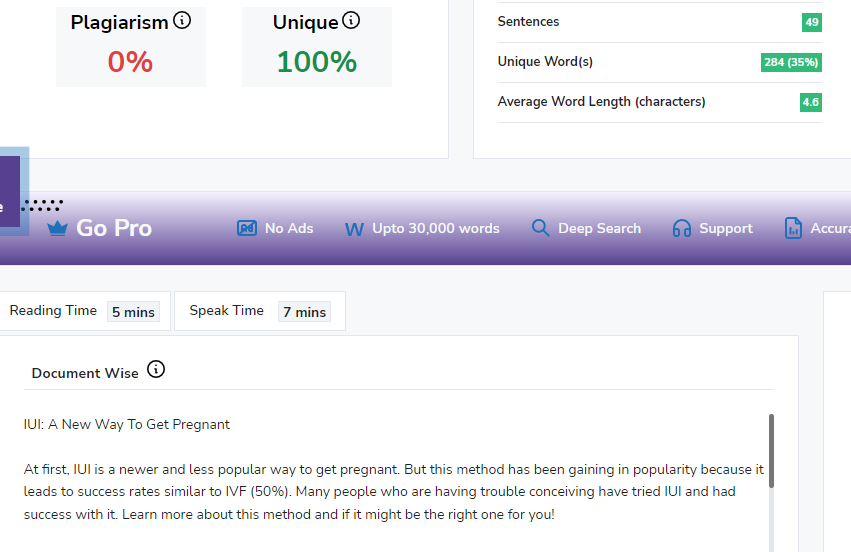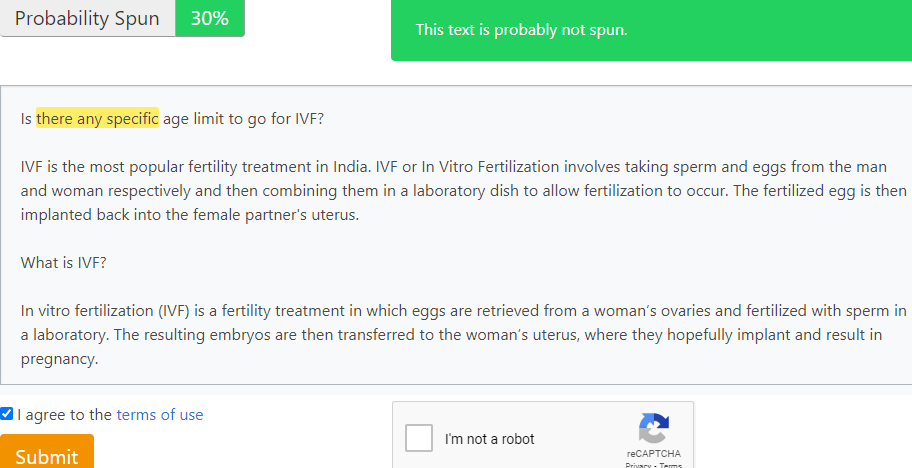
At first, IUI is a newer and less popular way to get pregnant. But this method has been gaining in popularity because it leads to success rates similar to IVF (50%). Many people who are having trouble conceiving have tried IUI and had success with it. Learn more about this method and if it might be the right one for you!
IUI is a fertility treatment that involves inserting sperm into a woman’s uterus to help her get pregnant. It is often used in cases where the man has low quality sperm, or when there are other issues with the sperm. IUI can also be done with drugs to increase chances of conception.
The success rate of IUI varies depending on the underlying cause of infertility, but it is generally considered to be a less invasive and less expensive option than in vitro fertilization (IVF). IUI is typically performed using a thin, flexible catheter that is inserted through the cervix into the uterus. The sperm is then injected into the uterus, where it hopefully will fertilize an egg and lead to pregnancy.
IUI can be an effective treatment for infertility, but it’s important to consult with a fertility specialist to determine if it’s the right treatment for you.
There are many reasons why people opt for intrauterine insemination (IUI) as a means of becoming pregnant. Some may have difficulty conceiving due to medical issues such as endometriosis or polycystic ovarian syndrome, while others may have male factor infertility. In some cases, IUI may be used in conjunction with fertility drugs in order to increase the chances of conception.
IUI is a treatment that can be used to help couples who are struggling to conceive. IUI involves placing sperm inside the woman’s uterus, which gives the sperm a better chance of fertilizing the egg. IUI can be used for couples who have unexplained infertility, mild endometriosis, or mild male factor infertility. IUI is also often used as a first-line treatment for couples who have been trying to conceive for less than a year.
If you and your partner have been trying to conceive without success, you may be considering intrauterine insemination (IUI).
The first step in preparing for an IUI cycle is to consult with a fertility specialist. They will perform tests to determine the cause of your infertility and whether IUI is likely to be successful for you.
Once it has been determined that IUI is a good option for you, you will need to take medication to stimulate your ovaries to produce multiple eggs. These medications are typically injected daily for about two weeks.
Around the time that your eggs are mature, you will have another ultrasound and blood test to determine when ovulation will occur. Once ovulation has been confirmed, the IUI procedure will be scheduled.
On the day of the procedure, your partner will need to provide a semen sample which will be used to prepare the sperm for insertion. You will then be asked to lie down on an exam table and insert a speculum into your vagina. A catheter will then be passed through the cervix into the uterus and the sperm will be injected.
If you are considering IUI as a way to get pregnant, it is important to understand the best time to do an IUI cycle. The optimum time for IUI is during the follicular phase of your menstrual cycle, when the eggs are mature and ready to be fertilized. This usually occurs around days 12-16 of your cycle.
Your doctor will likely recommend that you have an ultrasound on day 10 or 11 of your cycle to confirm that the eggs are maturing properly. Then, on the day of your IUI procedure, you will be given medication to stimulate ovulation. The timing of the IUI is very important; it must be done within 12 hours of when the ovulation medication is given.
If you are having trouble getting pregnant, you may want to consider IUI as a possible option. IUI is a new way to get pregnant that is less invasive and more affordable than other methods, such as IVF. IUI can be done at home or in a clinic, and it has a high success rate.

